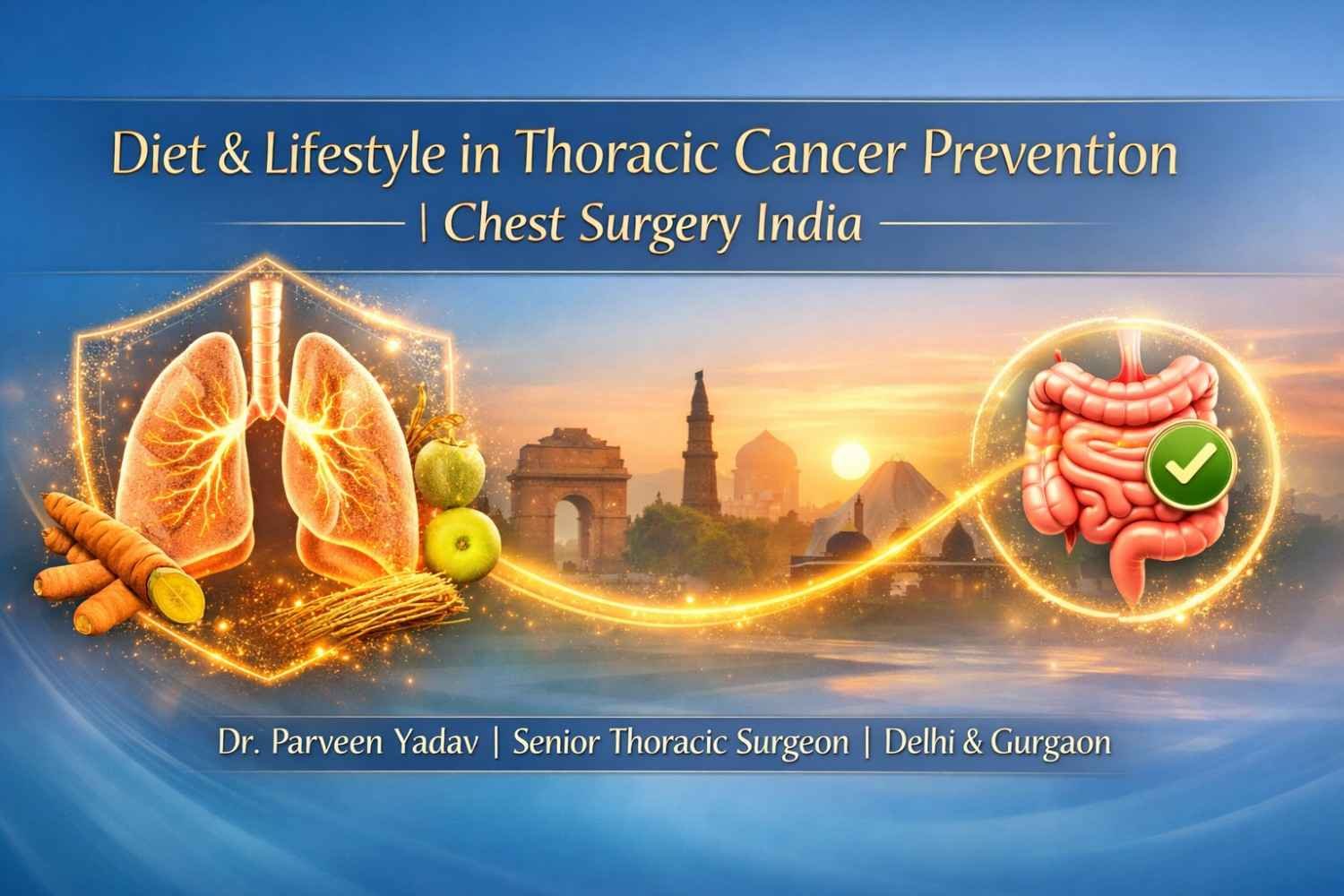

Esophageal cancer presents significant challenges in its diagnosis and treatment due to its aggressive nature and often late-stage detection. However, a ray of hope has emerged in the form of targeted therapies. These innovative treatments are designed to specifically target the unique genetic and molecular characteristics of cancer cells, offering a more precise and personalized approach to esophageal cancer treatment.
In this blog, we will explore the advancements in targeted therapies for esophageal cancer and how they are reshaping the landscape of treatment by tailoring interventions to individual patients.
Understanding Targeted Therapies: Targeted therapies are a class of cancer treatments that focus on specific molecules or pathways involved in the growth and spread of cancer cells. Unlike traditional chemotherapy, which affects both healthy and cancerous cells, targeted therapies are designed to selectively inhibit or block the functions of specific proteins that are crucial for cancer cell survival and proliferation.
Advancements in Targeted Therapies for Esophageal Cancer: Recent years have witnessed remarkable progress in the development of targeted therapies for esophageal cancer. Some notable advancements include:
HER2-Targeted Therapies: HER2 (human epidermal growth factor receptor 2) is a protein overexpressed in a subset of esophageal cancers. Targeted therapies like trastuzumab and pertuzumab have shown promising results in HER2-positive cases, inhibiting HER2's signaling pathways and impeding cancer growth.
VEGFR Inhibitors: Vascular endothelial growth factor receptor (VEGFR) inhibitors, such as ramucirumab, block blood vessel formation around tumors, limiting their blood supply and growth.
Immune Checkpoint Inhibitors: While not traditional targeted therapies, immune checkpoint inhibitors like pembrolizumab and nivolumab have shown success in treating esophageal cancer by blocking proteins that inhibit the immune system's ability to recognize and attack cancer cells.
EGFR Inhibitors: Epidermal growth factor receptor (EGFR) inhibitors are being explored in esophageal cancer treatment, as EGFR is often overexpressed in these tumors. Drugs like cetuximab and gefitinib target EGFR and hinder cancer cell growth.
MET Inhibitors: MET inhibitors are being investigated to target cancers with MET gene alterations, which are associated with aggressive tumor behavior. Tepotinib is an example of a MET inhibitor showing promise.
Personalizing Treatment Approaches: The key strength of targeted therapies lies in their ability to be personalized. Before initiating treatment, molecular profiling of the tumor is conducted to identify specific genetic mutations, overexpressed proteins, or other biomarkers. This information guides oncologists in selecting the most appropriate targeted therapy for each patient, maximizing the likelihood of a favorable response while minimizing potential side effects.
Challenges and Future Directions: Despite the progress, challenges remain, including resistance to targeted therapies and the need to develop new therapies for cases without identifiable targetable alterations. Ongoing research focuses on understanding the mechanisms of resistance and developing combination therapies to overcome this challenge.
Conclusion:
Advancements in targeted therapies have revolutionized the treatment landscape for esophageal cancer. By tailoring interventions to the genetic and molecular characteristics of individual tumors, targeted therapies offer new hope for improved outcomes and enhanced quality of life for esophageal cancer patients. As research continues and our understanding deepens, the era of personalized treatment approaches for esophageal cancer is poised to usher in a new era of more effective and precise interventions.

18+ Yrs Exp | 5,700+ Thoracic & Robotic Cancer Surgeries
Dr. Parveen Yadav is a Director and Senior Consultant in Thoracic and Surgical Oncology, specializing in minimally invasive and robotic lung and esophageal surgeries, with advanced training from AIIMS and Tata Memorial Hospital.
View Full Profile Pain After Thoracic Surgery: Tips for Smooth Recovery
Pain After Thoracic Surgery: Tips for Smooth Recovery
 Diet & Lifestyle for Thoracic Cancer Prevention | Dr. Parveen Yadav
Diet & Lifestyle for Thoracic Cancer Prevention | Dr. Parveen Yadav
 Robotic Thoracic Surgery: How Da Vinci Technology is Revolutionizing Chest Procedures
Robotic Thoracic Surgery: How Da Vinci Technology is Revolutionizing Chest Procedures
Struggling with pain after chest surgery? Dr. Parveen Yadav shares expert recovery tips, causes of shoulder pain, PTPS signs, and what your discharge sheet won't tell you.
Discover how diet, breathing exercises & daily habits help prevent and recover from thoracic cancer. Expert insights from Dr. Parveen Yadav, Chest Surgery India
Discover how Da Vinci robotic surgery is transforming chest procedures in Gurgaon. Less pain, faster recovery & expert care by a certified thoracic surgeon
Copyright 2026 © Dr .Parveen Yadav all rights reserved.
Proudly Scaled by Public Media Solution!